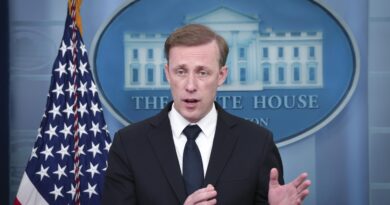Nominee for IRS Watchdog Pledges to Investigate Claims of Misconduct within the IRS
The nominee of the Biden administration informed senators that he plans to investigate alleged politically motivated audits and unfair targeting of small businesses.
David Johnson, the nominee for Inspector General for Tax Administration (TIGTA) in the Biden administration, promised to thoroughly investigate claims of IRS misconduct, including politically motivated audits and unfair targeting of small businesses for tax audits.
Chairman of the Finance Committee, Sen. Ron Wyden (D-Ore.), asked Johnson how he plans to prevent politically motivated misuse of IRS authority.
“If you become Inspector General, what steps will you take at TIGTA to ensure that Americans are not targeted for audit based on their political views?” Wyden inquired.
Johnson reassured the committee that addressing such misconduct would be a top priority. He promised to promptly investigate any claims of politically motivated tax audits and share his findings with Congress and other stakeholders.
“I believe that it is a key responsibility of any Inspector General to prevent fraud, waste, and abuse. Targeting Americans based on political affiliations would constitute a severe form of abuse,” Johnson stated. He emphasized that ordering the IRS to target political opponents would be an abuse of power that TIGTA aims to prevent.
“If you are confirmed, can you commit to further evaluating these IRS audit procedures to ensure compliance with the 2022 directive and the necessary protections for these small businesses unexpectedly under IRS scrutiny?” Blackburn inquired.
Johnson assured her that he would look into the matter. “Considering that TIGTA has already issued a report on this exact issue, a follow-up investigation seems appropriate,” Johnson replied, pledging to present a comprehensive briefing on the findings of the investigation and keeping Blackburn and other stakeholders informed.
Blackburn mentioned that concerned taxpayers have reported an increase in audit rates and feel targeted by the IRS.
Earlier, Blackburn raised concerns about the Biden administration allocating around $80 billion in extra funding for the IRS, enabling the hiring of thousands of new employees, including tax enforcers. She feared this might lead to increased audits targeting small businesses and middle-income households.
The TIGTA report mentioned by Blackburn in the confirmation hearing revealed the IRS’s slow progress in implementing the 2022 directive. The report highlighted that the agency has yet to finalize key definitions, such as what constitutes a “small business.” Currently, the IRS defines businesses based on asset size, proposing a threshold of under $10 million in assets. However, this definition is still under deliberation and lacks a timeline for finalization, as per the TIGTA report.
The report cautioned that delays in establishing a methodology could hinder meeting the directive’s requirements by fiscal year 2025, when audits for the tax year 2023 are expected to begin. TIGTA recommended that the IRS expedite its efforts and collaborate closely with Treasury to finalize its audit rate methodology.
In response, IRS Deputy Commissioner Douglas O’Donnell concurred with TIGTA’s suggestion and reaffirmed the agency’s commitment to the directive.
“The Commissioner has publicly pledged that the IRS will adhere to the Secretary’s directive not to increase audit rates beyond historical levels for small businesses or households earning less than $400,000,” O’Donnell stated in a memorandum to TIGTA on July 30. He mentioned that the IRS is working with Treasury to finalize the formal methodology for implementing the directive and is dedicated to enforcing the tax code according to the directive.
O’Donnell also mentioned that the IRS has shifted focus towards ensuring tax compliance among high-income earners, large corporations, and abusive promoters. This includes intensifying efforts on taxpayers with incomes over $1 million and recognized tax debts exceeding $250,000.




